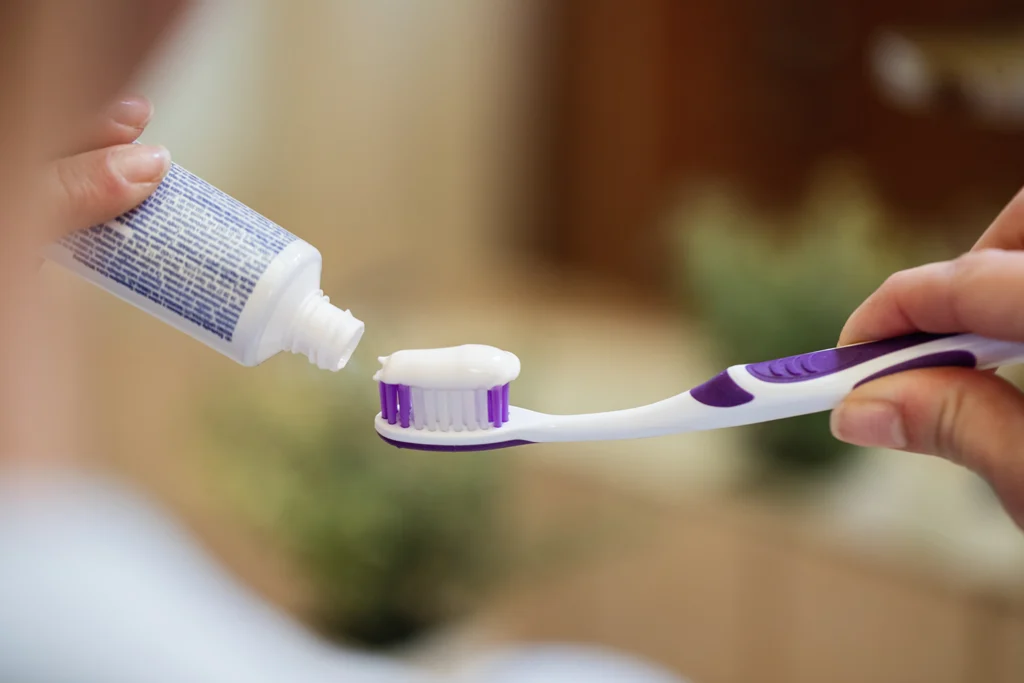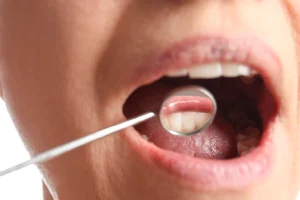Table of Contents
When we think about maintaining a healthy smile, many of us focus on brushing and flossing regularly or visiting the dentist twice a year. But there’s a critical part of your teeth that often goes unnoticed—the enamel. Tooth enamel is one of the most essential elements in preserving your oral health, yet it is also one of the most vulnerable to wear and damage. In this blog, we’ll explore why tooth enamel is so important, what happens when it’s damaged, and how to care for it. At Rim Point Dental, we’re here to guide you through every step of maintaining strong, healthy teeth.
What is Tooth Enamel?
Tooth enamel is the hard, outermost layer of your teeth. Composed mainly of minerals, particularly hydroxyapatite, enamel is the strongest substance in the human body—stronger even than bone. Its main job is to protect the inner layers of your teeth from decay, damage, and daily wear and tear.
Although enamel is incredibly durable, it’s not invincible. Unlike other parts of the body that can regenerate, tooth enamel does not grow back once it is lost or damaged. This makes it crucial to take steps to protect your enamel throughout your life.
Why Is Tooth Enamel Important for Dental Health?
Tooth enamel acts as your teeth’s first line of defense against various factors that can damage your oral health. Here are several reasons why enamel is so critical:
1. Protection from Decay
Tooth enamel shields the more sensitive layers of your teeth—dentin and pulp—from the bacteria and acids that can cause cavities and decay. When enamel is strong and intact, it helps prevent these harmful elements from penetrating the tooth and causing pain, infection, or tooth loss.
2. Prevents Sensitivity
Because tooth enamel covers the inner layers of the tooth, it also helps prevent sensitivity. When enamel wears down or is damaged, the sensitive dentin layer underneath becomes exposed. This can result in discomfort or pain, particularly when consuming hot, cold, or sugary foods and drinks.
3. Enhances the Appearance of Your Smile
Tooth enamel plays a significant role in the appearance of your teeth. It is naturally white and semi-translucent, giving your teeth a bright, clean look. When enamel becomes worn or stained, teeth can take on a yellow or dull appearance, making your smile less attractive.
4. Strengthens Teeth
Enamel helps keep your teeth strong and resilient to the forces of chewing, biting, and grinding. It protects your teeth from physical damage that could occur during these activities, as well as from injuries like chips and cracks.
What Happens When Tooth Enamel Is Damaged?
Despite its strength, enamel can wear away due to various factors, leading to potential long-term issues. Here’s what can happen when enamel is damaged:
Cavities
When enamel erodes, it can no longer provide a protective barrier against bacteria and acids, leading to tooth decay. As the enamel continues to wear down, it increases the risk of developing cavities, which can eventually reach the inner layers of the tooth, causing infection or requiring root canal treatment.
Tooth Sensitivity
Damaged enamel exposes the underlying dentin, which contains tiny nerve endings. This exposure can make your teeth highly sensitive to temperature changes and certain foods, causing discomfort or even sharp pain when eating or drinking.
Increased Risk of Cracks or Chips
Weakened enamel makes your teeth more susceptible to physical damage. Teeth with eroded enamel are more likely to develop cracks, chips, or fractures, which may require restorative dental procedures like fillings or crowns.
Discoloration
Enamel erosion often results in discoloration. The dentin beneath enamel is naturally yellow, so as enamel wears thin, your teeth may start to appear more yellow or darker. This can diminish the aesthetic appeal of your smile.
Advanced Wear and Tear
Without strong enamel, the daily forces of chewing and biting can cause excessive wear on your teeth, leading to uneven edges, flattened surfaces, and structural weakening over time.
Can I Restore Tooth Enamel?
Unfortunately, enamel cannot regenerate or grow back once it has been lost. However, while you can’t restore lost enamel, there are ways to remineralize and strengthen the enamel you still have.
Remineralization involves restoring lost minerals, like calcium and phosphate, to the enamel. This can help repair weak spots and protect your enamel from further damage. Here are a few ways to promote remineralization:
- Fluoride Treatments: Fluoride is one of the best tools for remineralizing enamel. It helps to strengthen the tooth’s surface, making it more resistant to acid attacks and decay. You can get fluoride from toothpaste, mouthwash, or professional treatments at Rim Point Dental.
- Calcium and Phosphate: Products containing calcium and phosphate can help reinforce your enamel. These minerals bond with your tooth’s surface to make it harder and more resistant to erosion.
- Proper Oral Hygiene: Brushing with a fluoride toothpaste, flossing daily, and using a fluoride mouthwash are crucial steps to protect your enamel.
While remineralization can help prevent further damage, it’s essential to take action early to avoid the irreversible effects of enamel erosion.

How to Care for Tooth Enamel
Knowing how to care for tooth enamel is the key to preventing damage and keeping your teeth healthy for life. Here are some tips:
Practice Good Oral Hygiene
Brushing and flossing daily with fluoride toothpaste and a soft-bristled toothbrush is the foundation of enamel care. Be sure to brush for at least two minutes twice a day to remove food particles and plaque, which can produce acids that erode enamel.
Avoid Sugary and Acidic Foods
Sugary foods and drinks feed harmful bacteria in your mouth, which produce acids that attack enamel. Acidic beverages like soda, fruit juices, and even certain teas can also wear down your enamel. Limiting these foods and drinks can protect your enamel from erosion.
Drink Plenty of Water
Water is not only essential for your overall health but also for maintaining healthy enamel. Drinking water throughout the day helps wash away acids and food particles, promoting a healthier oral environment. Water with fluoride offers additional protection.
Use a Fluoride Toothpaste
As mentioned earlier, fluoride helps strengthen enamel and protect it from decay. Make sure your toothpaste contains fluoride to aid in enamel remineralization.
Don’t Brush Too Hard
While brushing your teeth is important, doing so too aggressively can wear down enamel. Use a gentle, circular motion with a soft-bristled toothbrush to avoid damaging your enamel.
What Foods Are Best for Tooth Enamel?
Nutrition plays a critical role in supporting strong enamel. So, what foods are best for tooth enamel? Here are some enamel-friendly foods to incorporate into your diet:
Dairy Products
Dairy products like milk, cheese, and yogurt are rich in calcium and phosphate, which help replenish the minerals in your enamel. Cheese, in particular, can raise the pH level in your mouth, reducing acidity and lowering your risk of enamel erosion.
Leafy Greens
Leafy greens such as spinach, kale, and broccoli are excellent sources of calcium, which is essential for maintaining strong teeth and enamel. They also promote saliva production, which helps neutralize acids in your mouth.
Crunchy Fruits and Vegetables
Crunchy fruits and vegetables like apples, carrots, and celery have a dual benefit. Not only do they stimulate saliva production, but they also help scrub your teeth, reducing the risk of plaque buildup that can lead to enamel damage.
Nuts
Almonds, cashews, and other nuts are packed with protein and calcium, both of which are essential for maintaining strong enamel. Nuts also help neutralize acids in the mouth, protecting your enamel from erosion.
Water
While not technically a food, water is one of the best things you can consume to protect your enamel. Drinking water, especially fluoridated water, helps wash away acids and bacteria that can damage your enamel.
Conclusion
Tooth enamel is an essential component of dental health, protecting your teeth from decay, sensitivity, and wear. Although you can’t restore lost enamel, you can take steps to remineralize and protect the enamel you have. By following a proper oral hygiene routine, avoiding harmful foods, and consuming enamel-friendly foods, you can keep your enamel strong for years to come.
At Rim Point Dental, we’re dedicated to helping our patients understand the importance of enamel care and providing the treatments necessary to protect and strengthen it. If you’re concerned about the health of your enamel, don’t hesitate to schedule an appointment with us. We’ll work with you to develop a personalized care plan that promotes long-lasting dental health.



